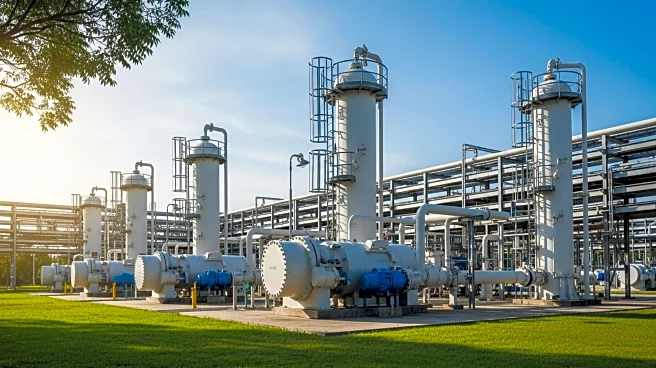What's Happening?
Nigeria's Minister of Finance and Coordinating Minister of the Economy, Wale Edun, held strategic discussions with Nigeria LNG Limited (NLNG) in Abuja. The meeting focused on Nigeria's ambition to produce 10 billion standard cubic feet of gas per day by 2030. Edun emphasized the importance of recent agreements, such as the Deepwater deal with TotalEnergies, in creating a competitive and investor-friendly environment. He highlighted the role of comprehensive tax reforms and digital trade systems in streamlining oversight and ensuring fairness. NLNG CEO Philip Mshelbila reported improvements in gas supply and security, as well as infrastructure advancements like the Bodo-Bonny Road project.
Why It's Important?
The discussions are crucial for Nigeria's energy sector, as the country aims to enhance its gas production capabilities. Achieving the production target by 2030 could significantly boost Nigeria's economy, providing energy security and attracting foreign investment. The reforms and infrastructure projects discussed are expected to create a more transparent and efficient business environment, fostering confidence among investors. This aligns with the Renewed Hope Agenda of President Bola Ahmed Tinubu's administration, which seeks to unlock Nigeria's energy resources and drive economic growth.
What's Next?
The next steps involve implementing the discussed reforms and infrastructure projects to meet the 2030 production target. Stakeholders will likely continue to collaborate on creating a favorable investment climate. The government may introduce additional policies to support the energy sector's growth, while monitoring the progress of ongoing projects like the Bodo-Bonny Road. The success of these initiatives could lead to increased foreign investment and further development of Nigeria's energy resources.









